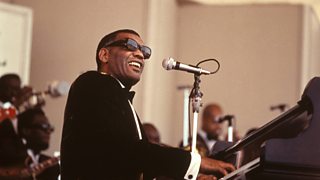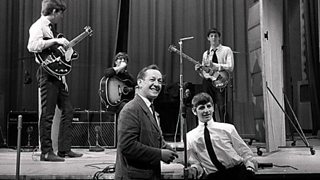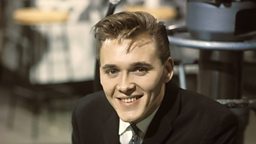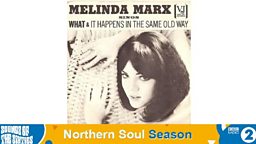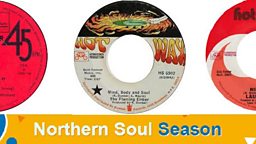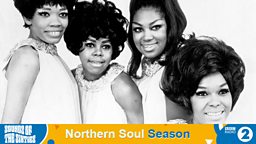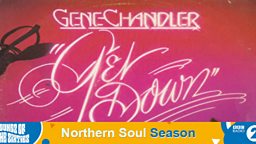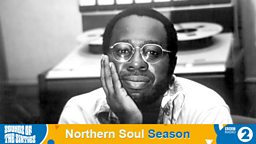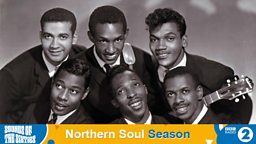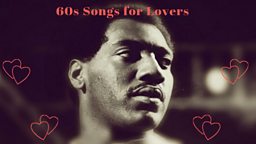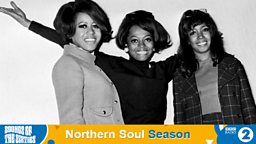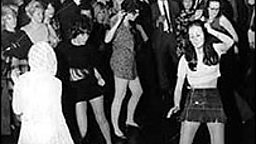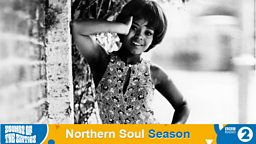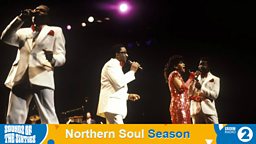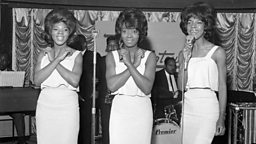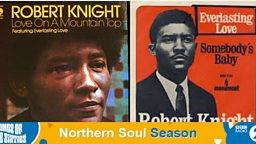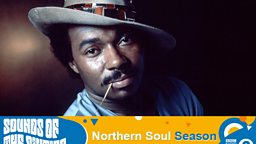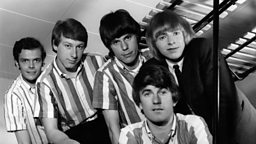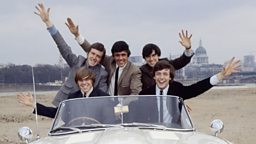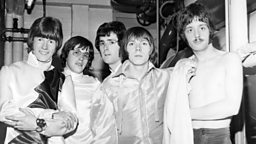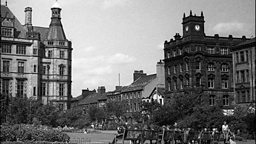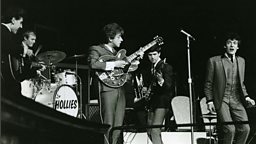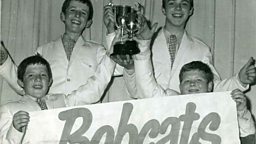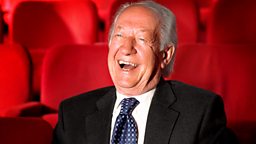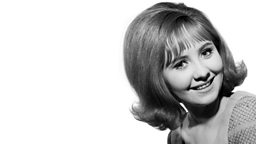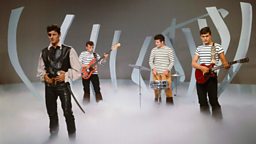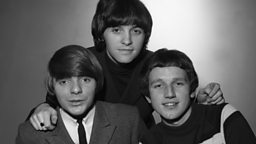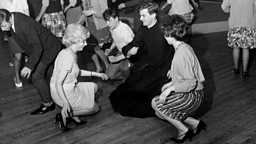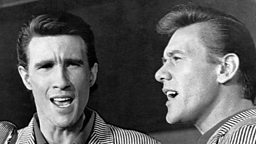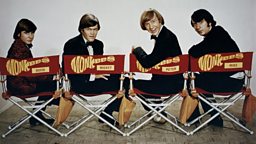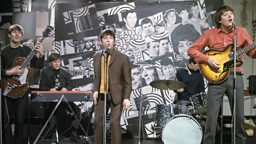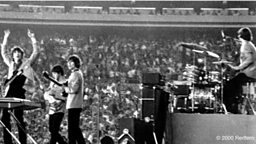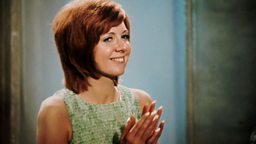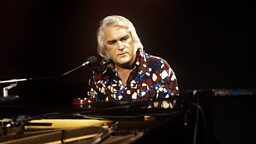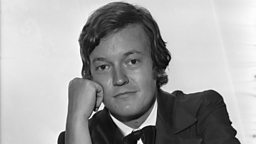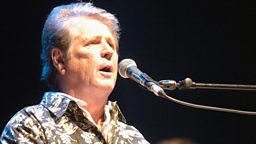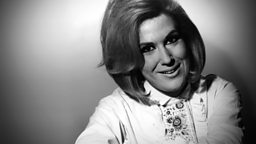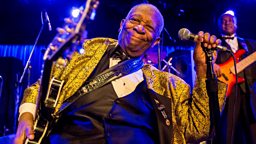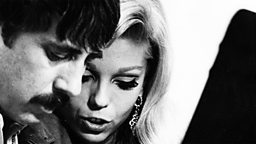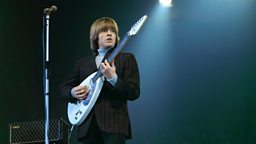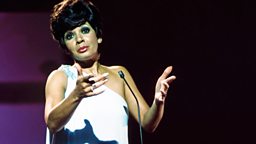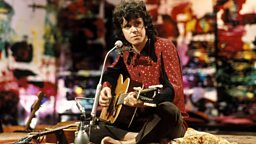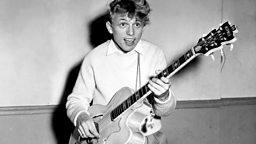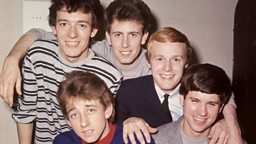Manfred Mann
by Bob Stanley
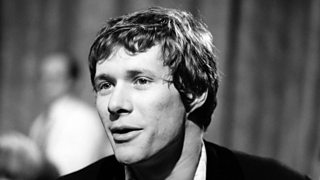
Pop stars aren't real stars like Sammy Davis Jr. or Frank Sinatra. You are torn all the time between the apparent grandeur of being on stage in a silk shirt, then bombing down the M1.Paul Jones on stardom
A commonly aired complaint about contemporary pop stars is that they are too careerist - they're only in it for the money. Yet the band that beats them all hands down is Manfred Mann. Dig out pretty much any old interview with them and you'll find their bespectacled keyboard player looking glum, while the rest of the group seemed to be permanently looking for something better to do. If you call a song I Wanna Be Rich, you're not hiding your light under a bushel.
"I'm just in the business to support my wife and daughter" said Manfred in 1966 when, in spite of the group's supposed hack-work, they had just scored the first ever hit single to use a mellotron: Semi Detached Suburban Mr James was a few months ahead of Strawberry Fields Forever, which is commonly thought of as introducing the instrument to the world, and over a year before the made it their trademark sound on Nights In White Satin.
What an odd bunch the Manfreds were, more of a commercial art collective than a group. They were all multi-instrumentalists, mostly with a jazz bent; drummer Mike Hugg doubled on vibraphone, while guitarist Mike Vickers was equally at home playing woodwind. Singer Paul Jones was pop's resident intellectual on TV, so it was no surprise when he went solo in 1966 after Pretty Flamingo gave them their second number one. Vickers had left a few months earlier to write TV and film music - he wrote the memorable score for the David Warner and Vanessa Redgrave movie Morgan: A Suitable Case For Treatment in '66, then conducted the orchestra for the live broadcast of the ' All You Need Is Love a year later. That wasn't the only Manfreds/Fabs tie-up - bassist Klaus Voorman came up with the cover illustration for Revolver.
By 1968, the remaining Manfreds were writing a film score of their own for another sixties London classic, Up The Junction. The theme tune was also released as a single but, in spite of its excellent harmonies and arrangement, it was a complete flop. The soundtrack album is probably their finest hour, blending jazz instrumentals like Belgravia with the bubblegum Need Your Love and an extended version of the theme song.
Paul Jones had been replaced back in '66 by the rather similar looking Mike D'Abo, who was no mean songwriter - he wrote Handbags And Gladrags, originally a minor hit for Chris Farlowe and later recorded by Rod Stewart and Stereophonics. You have to wonder why Manfred Mann didn't record it. "I think the excitement probably has gone out of pop" he told Melody Maker's Chris Welch that year. "For the people who make it in pop, there is a great sense of disillusionment. It just gives you a chance to get into a higher income bracket. Pop stars aren't real stars like or . You are torn all the time between the apparent grandeur of being on stage in a silk shirt, then bombing down the M1. Pop is a stepping stone into the wider world of show business. It's a good starting off point. No, I don't think pop deserves any more respect than it gets because the system is so phoney anyway."
Also interviewed by Chris Welch in 1968, Manfred himself explained what side projects the rest of the group had on the go. Drummer Mike Hugg "has produced a record for his brother's group and Tom (McGuinness, the guitarist who played the stand-out intro on Pretty Flamingo) has been occupied on a book which is a parody of the pop scene he's trying to get published. I haven't read it yet, but I gather it's vaguely obscene."
The obscene book never came out, but Mann and Hugg moved into a lucrative new area, writing jingles for Michelin tyres and Ski yoghurt - the "full of fitness food for all the family, na na-na na na naaaaah!" Another jingle, used on a near x-rated ad for Manikin cigars, was released as the b-side of their last single, Ragamuffin Man in 1969. It was called A B-Side, which suggested they were running low on ideas.
It seems astonishing that Manfred Mann's songs were, on the whole, so chipper. Looking back in 1976, Manfred moaned "the Sixties goldfish bowl was terrible, man. Just awful. I didn't at all enjoy people knocking at my front door for an autograph; or going for a walk in the park with my wife and kids and people shouting, pointing and singing Do Wah Diddy Diddy. I was very glad to see it go. Absolutely no regrets and no hankerings."
-
![]()
Extra info and facts about the songs we play
-
![]()
Brian shares more memories with Bob Stanley
